BALTIMORE, MD – The Maryland Zoo in Baltimore is rehabilitating a female North American river otter (Lontra canadensis) pup. The animal, estimated to be about 40 days old at the time of rescue, was found stranded on the shores of the northeast branch of the Chesapeake Bay in Elk Neck State Park.
Park officials waited and watched for signs of its mother but, when she didn’t return they contacted a local animal rehabilitation facility before the decision was made to bring the pup to the Zoo for care.
“Otters that young are very vulnerable without their mother,” said Erin Cantwell Grimm Mammal Curator at the Maryland Zoo. “They need to eat every few hours, so our hospital staff has been working around the clock. Pups learn all their life skills from their mother so it’s up to us to teach them things an otter should know, like how to hunt, what’s safe to eat and, believe it or not, not to be afraid of the water at first.”
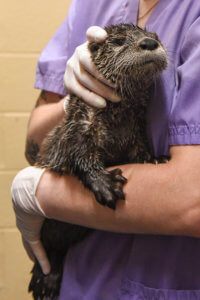
The otter is living in the quarantine area of the Zoo’s animal hospital until it has received initial vaccinations, passed initial health examinations, and becomes a more experienced swimmer. The Zoo is working with the Species Survival Plan (SSP) coordinated by the Association of Zoos and Aquariums (AZA) to identify the best future home for the otter.
“The pup was quite young when it was found without its mother so it would not have been able to survive on its own in the wild. So, we have to take over and make sure it has all the tools she’ll need to thrive into adulthood,” Grimm said.
River otters live throughout North America. Despite their name, they’re comfortable living in different bodies of water including streams, lakes, ponds, wetlands, and coastal shorelines and marshes. In Maryland, river otters also live in tidewater areas across the state. A wild otter pair generated excitement recently when they were spotted living in the Jones Falls near Mt. Washington in Baltimore City. The Zoo’s male otter, Hudson, can be found in a custom-designed habitat in the Maryland Wilderness section of the Zoo.

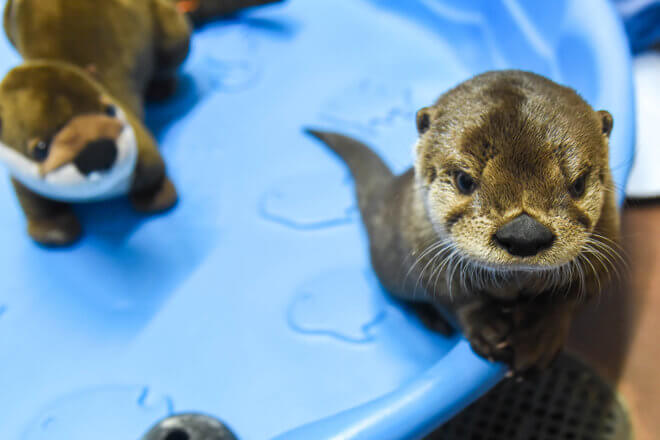
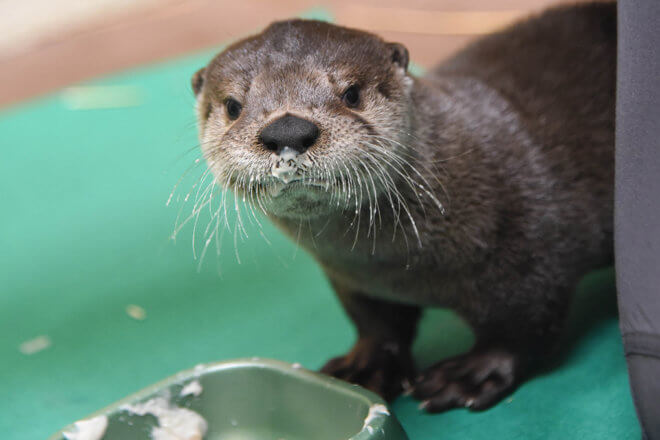
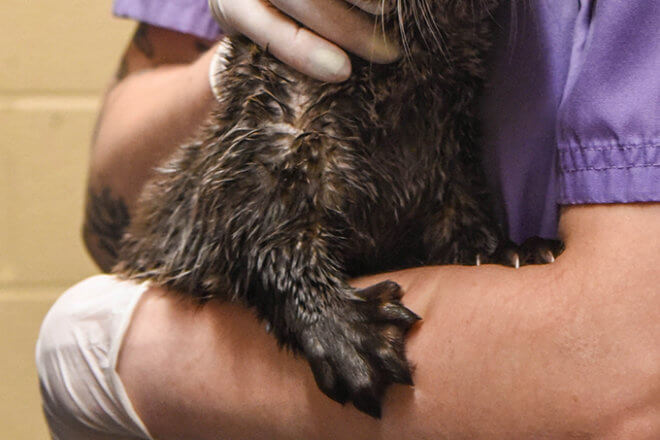
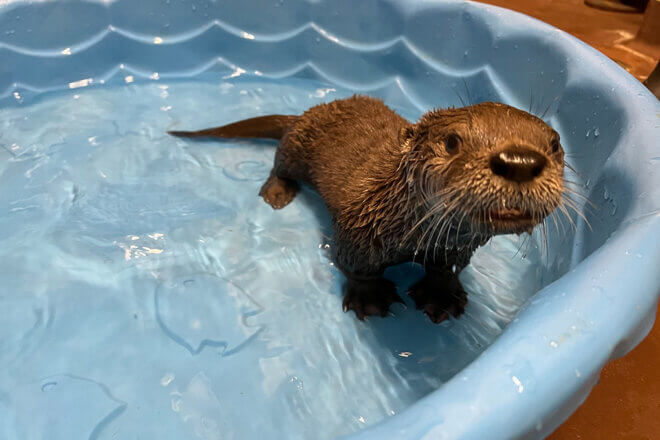
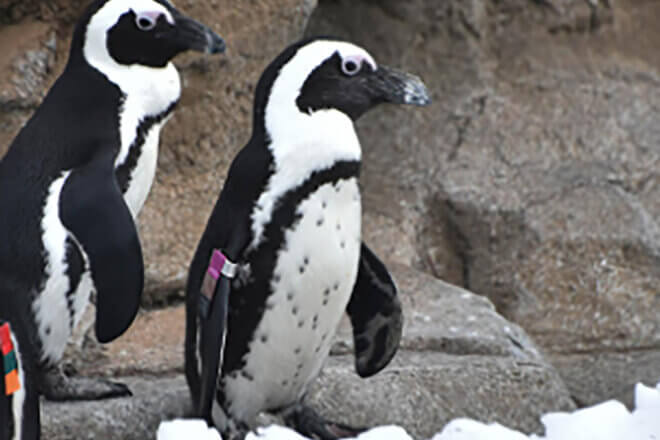
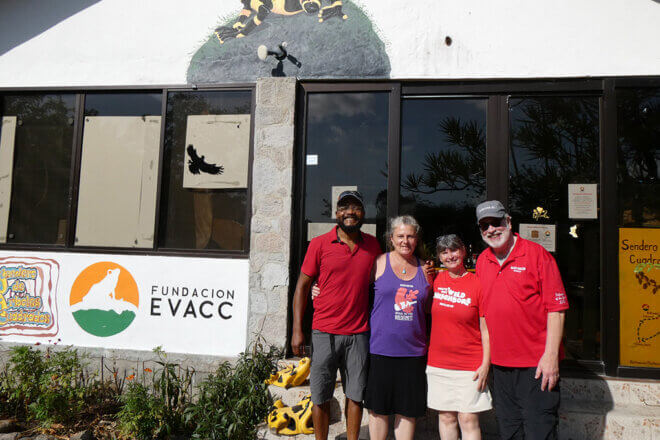

Share this article